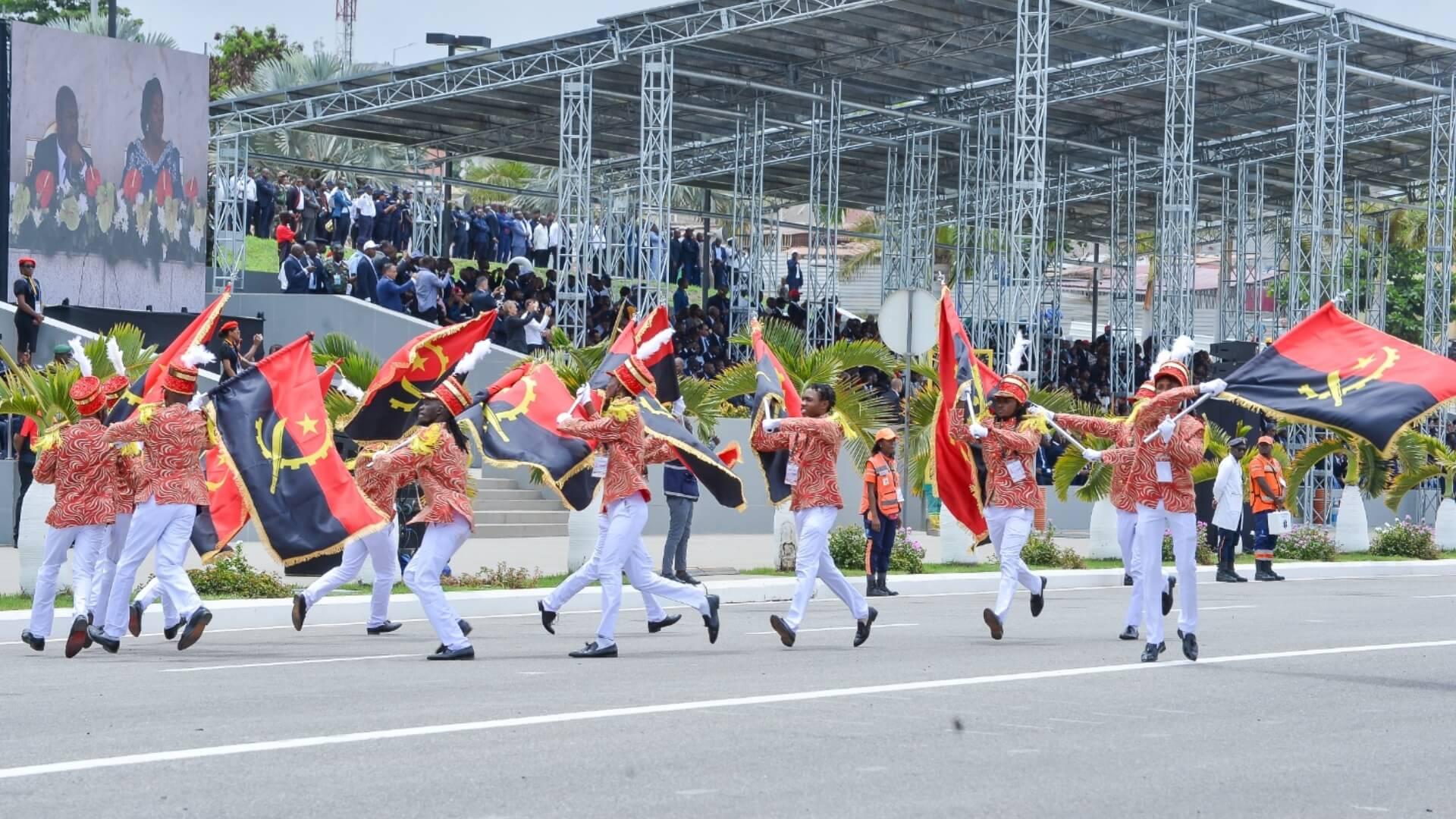Fifty years after independence, Angola celebrates its resilience and hard-won freedom—but the golden jubilee also exposes deep economic challenges still shaping everyday life.
LUANDA, Angola — November 11, 2025 — Angola marked its 50th anniversary of independence with a grand ceremony in Luanda that drew 8,000 guests from 70 nations. Yet even as fireworks lit the skyline and the Armed Forces paraded through Republic Square, the celebration carried an undercurrent of discontent.
For many citizens, the jubilee was not just a commemoration of liberation from Portuguese colonial rule—it was a sober reflection on persistent poverty, inequality, and unfulfilled promises.
President João Lourenço struck a tone of reconciliation in his national address, acknowledging both “the high and less good moments” of Angola’s journey. He awarded commemorative medals to key anti-colonial figures, including several previously sidelined by political divisions, framing the gesture as one of “forgiveness, peace, and national reconciliation.” Across the country, flag-raising ceremonies and civic parades symbolized unity after decades of upheaval.
Angola’s independence on November 11, 1975, came at a heavy cost. A 13-year war against Portuguese rule ended 500 years of colonial domination but gave way to a civil conflict that lasted nearly 30 years.
Founding president Agostinho Neto’s call to “solve the people’s problems” remains a moral compass for a country still wrestling with stark socioeconomic divides.
In his State of the Nation address, Lourenço highlighted major demographic and infrastructural shifts. Angola’s population has ballooned from 6.5 million in 1975 to nearly 35 million today, putting immense strain on basic services.
Despite vast oil reserves, which account for more than 90% of export revenue, the nation struggles with high unemployment, inflation hovering near 18%, and a cost of living that continues to outpace wages.
Global leaders joined the celebration, including Indian President Ram Nath Kovind and Congolese President Denis Sassou Nguesso, affirming Angola’s regional importance and growing diplomatic reach. Kovind commended Angola’s “resilience and progress,” while Rwanda’s delegation honored the sacrifices of freedom fighters who paved the way for independence.
But as dignitaries gathered in Luanda, many ordinary Angolans voiced frustration. Earlier this year, fuel price protests left 22 people dead, amplifying public anger over economic stagnation and government accountability.
“We’re proud of our flag and our independence,” said a Luanda resident, “but after 50 years, people still struggle for clean water and steady electricity. We can’t celebrate fully until things change.”
Lourenço’s emphasis on reconciliation reflects a broader attempt to close historic wounds between the ruling MPLA and the former rebel group UNITA. His administration has revived Neto’s vision of agriculture as the economic foundation and industry as “the decisive factor” for transformation.
The president also outlined a plan to expand banking access to 65% of citizens by 2027 and pledged renewed focus on job creation, infrastructure, and food security.
Cultural pride remains central to the jubilee. Angola’s golden anniversary coincides with its chairmanship of the African Union—a symbolic opportunity to project national leadership.
More than 115 commemorative events are scheduled throughout 2025, from music festivals celebrating kizomba, semba, and kuduro to debates and exhibitions chronicling Angola’s postwar journey.
For a generation born long after independence, the anniversary represents both hope and a demand for accountability.
Young Angolans see a country rich in potential yet constrained by mismanagement and oil dependency. “Our parents fought for freedom,” said 24-year-old university graduate Carla Mateus. “Our fight is for opportunity.”
As Angola enters its second half-century, the path forward will hinge on whether its leaders can transform symbolic unity into tangible progress.
Lourenço urged citizens to see the jubilee not as an endpoint but as “a renewal of purpose.” Yet the challenge is formidable: translating national pride into shared prosperity.
Half a century after the midnight declaration of independence, Angola stands resilient but restless—celebrating its sovereignty while still striving to fulfill the promise of its revolution.
Leave a comment
Your email address will not be published. Required fields are marked *





